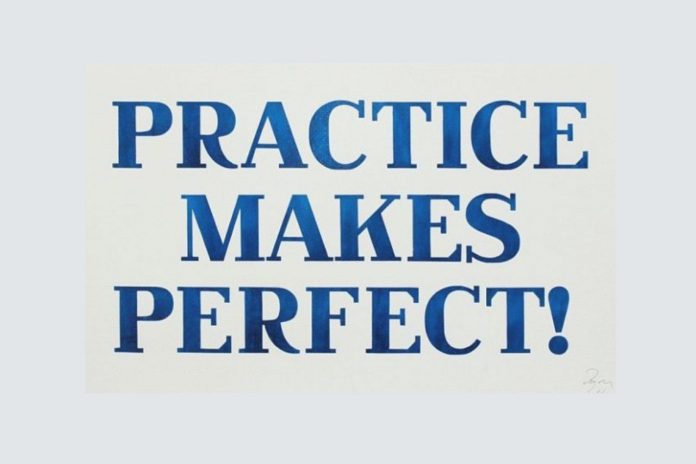There you are! The last day of your English lessons! You are about to get your long-awaited certificate of English and suddenly you become concerned. You start thinking about something that went unattended before: “How am I going to practice my English now that I am not taking classes anymore?
Does this scenario seem familiar to you? Most people study English because it is a requirement for their studies, work or for other personal goals. Indeed, once they get the required level, they stop studying it formally and eventually, lose practice. Is there something you can do to enhance the level of your 2nd /or 3rd language? Of course there is, In fact, there are a number of ways to keep improving your English once your courses are over! And here comes the best part: most of these are tuition-free! However, they demand commitment and organization
Below, there is a list of ideas:
1. Use the social media to practice your English: chat in English, post comments in English, share information in Twitter in English. You may form a circle with your former classmates and keep in touch.
2. Enjoy movies in English. If you do not feel confident enough to understand the gist, read the captions (also in English) and pause the film when you need to reflect on a new word that caught your attention. Keep curious!
3. Are you a music fan? Get the lyrics of your favourite songs and sing them as many times as you want. First for pleasure, then try to decipher some segments you did not understand at first. You will learn a lot about slang, contractions, blending, silent letters and even silent syllables. And have fun while learning!
4. Dedicate at least 30 minutes a day to read in English: there is no need to be an intellectual to practice your new language. Start reading texts that you understand and are of your interest. This will give you confidence and little by little you will start reading more complex texts.
5. Read graded novels or classic stories: there is nothing better than reading a novel in its original language, even when it is graded. Nowadays you can find audio books and listen while you are reading, so you have a double input: auditory and visual.
6. Practice different kinds of exercises: listening, grammar, vocabulary, whatever you feel like practicing. There are many of them on the web waiting for you! In your classes, you were used to drill with some of them; you may keep using them for practice, ask your ex-teacher for other resources, or share some sites with your friends.
7. Write to your friends abroad: now with a vast number of academic exchange programs or work and travel, there are plenty of chances to keep in touch with the ones you met when either they visited your country or you were in theirs. There are no excuses!
8. Change the setting of your mobile phone and email account to English. That way you will always be exposed to this language and you will internalize that routine quickly!
9. Organize your learning: keep a diary, a journal or start with simple things like classifying vocabulary or reading aloud.
10. Be informed: read about international affairs. It is always interesting to know how the English speaking world sees us.
So you see? Your course may be over, but not your willingness to learn or keep practicing the language you studied. These ideas apply to any new language.
And what about you? What works for you? Would you like to share any of your strategies?
We are looking forward to your posts letting us know the tactics you have tried out yourself and proved effective.
Stay tuned! Until soon!
References:
Estimated reading time: 3 minutes, 12 seconds











I would go far beyond saying "it is possible". I would rather say "students had better" keep learning English after the class is over, by both study and practice. Otherwise they start to forget their English and will soon need classes again. Knowledge of a foreign language is not something you can store. You might say it is perishable. Case in point: my mother took more years of French than Spanish in high school, but has forgotten almost all her French and knows enough Spanish to function in Peru. The difference? She has had many opportunities to practice her Spanish over the years, but hardly any to practice her French because no one in Indiana (where she spent most of her adult life) speaks French. So the question to ask is not "if", but "how". The article above wisely focuses on the all-important "how" question.
These article sure brings back some memories! I've done all those tips to keep my English knowledge as fresh as possible before getting into higher education. However, after a third and forth language it gets a little hard to find enough time to practice them all. I guess that with better organization it can be possible. However, I know I'll always prioritize one and neglect the others.
This article has come in handy at the best moment to remind me that I should keep practicing everyday.
I think your article is interesting because it is about what is coming after your students'academic classes.As you have mentioned before, there is a number of wyas to continue practicing after you have finished your English courses. Nevertheless, it is quite difficult to do unless you are committed to do it. One of the ideas that worked for me is to have or participate in an English Club, I mean, a group of current and former students who want to have some hours of extra practice ; maybe at weekends or during the weekdays. Also they could get in touch with one of their former teachers and together with him or her make a group.
It really works and the students are eager to meet because they know they can do something interesting like: talking, commenting the news or perhaps sharing ideas related to their different occupations or jobs. Thank you.
I really like your quote, Michael: "…a foreign language is not something you can store". We need to keep practicing it somehow and enjoy the experience to make the most of it. Needless to say, when it is a survival tool, it becomes handy once again.
Thank you for such an interesting post! ZC
You made a good point, Maria Fernanda: What to do when you are multilingual? Food for thought.
Feel proud of your achievements: you speak four languages! Congratulations! ZC
You are right, Arminda. An English club always works because people who join it share the same interest: to practice a foreign language in a natural setting.
Some days ago, a friend told me that in her office, each Friday English was compulsory, that is, it felt different to have a casual Friday + to communicate just in English. What do you think? I really found this strategy appealing.
Thanks for sharing! Keep following us! ZC
This article explains perfectly how I felt when I "finished" my english course long time ago. As a students we think we don't need more practice after we finishing a course, which is sad. We always need to practice more (not just English also other languages we know) and learn new vocabulary, phrasal verbs, expressions, etc. And now with the technology we can do it, everything it's possible.
Thanks teacher for this article, it made me realize how important is to practice every day and I can use your tips.
The article brought me back to my last day of college! I've tried almost every tip mentioned in the blog and they have helped me a lot in order to not forget how to write and speak in English. Also, I'd like to add two more tips: 1 Teach English: the more you teach, the more you learn! 2 Travel abroad and practice English everyday, this way you will not also keep practicing, you will also learn new words. Great post!
For me, there are two more tips:
1. Checking again your notebooks and books. There are always written different notes and when you read them again sometimes you remember those moments and the reasons why you wrote the notes. It's
2. Doing something you like, I mean if you are reading an interesting book and suddenly you find a new word or expression you don't understand, you are going to check the meaning and that's because you are interested in the book. That wouldn't happen if you are reading a boring book.
I think the most difficult part is to practice your speaking because your fluency decreases after a long period and when you want to start a conversation it's a little hard to organise the ideas.
Dear Zarela, I think it must be cool to share every thing you do in an English speaking environment. I bet they have fun and at the same time they are practicing what they have learnt to improve their fluency in the language they are supposed to be communicating in their workplace. This idea could be something to imitate in order to continue practicing the target language. Good for them!
Thanks Zarela , see you around.
Well, we never finish learning a language since it evolves and there is always a need to be updated.
I can see that you know about the importance of enhancing your vocabulary at all times. I am sure you will find the way to keep your English alive.
Thank you for following us! ZC
Dear Liz,
thank you for letting us know that you were familiar with these tips, and most importantly, that they worked for you!
I do appreciate your two tips and I couldn't agree more. I would also add something I was talking about with a friend today: the more you share, the happier you become! That is also the core of our vocation.
Until soon! ZC
Dear José,
thank you for sharing your tips! It is true that when we take a look at our books and/or notes, we remember the moment they were written and the reason why you took those notes. That way, you keep not only your memories, but your knowledge alive.
Regarding the second tip, I also do the same with films, and I stop for a while to write a new word or expressions I am not familiar with. It is a matter of being intelectually curious as well.
Best of luck! ZC
Very interesting post! What works for me is reading in English. I try to read in English as much as I can. It is really important to keep in touch with the language once you finished to study, otherwise you might get rusty. There is also a lot of English web pages to practice English, I particularly enjoy to do grammar exercises, it might sound nerdy or weird, but somehow it relaxes me! I agree with Liz, teaching is another great way to keep in touch with the language.
Regards,
Danitza
I love this article! It makes me remind all the little things I use to do to continue practicing other languages. It looks like too many things and no time to apply it but that's not true. The advantage of learning english nowadays is that you can find everything in another language. I love listening music, writing and watching series in Netflix and It's simply awesome. Thanx for sharing this article!
What I like the most from posts like yours, is not only the willingness to share your tips but also to make your voice heard. It was very nice to see how you connected your own ideas with Liz's ideas.
Regarding grammar, you are not alone.Do not worry, it is not weird at all. Two months ago, I had a very nice student whose main interest was grammar. We had enlightening and amusing chats about different grammar points seen in class and he always wanted to know more than the average. So you see? Welcome to the club!
Thank you for your interesting post! Keep following us!ZC
Eliminar
You are right, Ysabel. Nowadays access to information in English is practically unlimited. It is a matter of knowing what to look for and where to find the information that suits you best.
Moreover, you showed us that it is possible to have fun while learning and relaxing!
Thank you for following us! ZC
Interesting post!
Music was the main reason why I wanted to learn English in the first place. I remember that, as a child, I was so curious about the meaning of the lyrics that, little by little, singers became my first teachers! Movies and talking to friends also became a huge part of my learning process. I think it is important to connect what you like to what you want to learn.
Another option would to have a litte gathering with friends that also want to learn the language and play games like charades. A night of fun could become a night of learning.
Regards,
André Núñez
Great tips, Andre and welcome to the club! You brought me back some memories! Who hasn't sung a song without knowing the lyrics for a reason or anothe? However, when we improve our knowledge of the language and understand every single word of the song, our sense of achievement encourages us to keep on learning.
I couldn't agree with you more: we should have fun while learning!
Until soon! ZC
Este comentario ha sido eliminado por el autor.
This article is a reminder to everyone who has studied a foreign language that you must not neglect your learning about the language! As we all know, languages are constantly changing: new words are incorporated, some others are disappearing, slang words that were used 5 years ago now are replaced by others and so on. So it's important to practice the language as much as possible. In my case, I usually listen to music in English and I force myself to learn the whole lyrics. But, while I'm learning the song I focused on the "grammar mistakes" (we know that some structures are modified for the sake of rythm or rhyme) that I can find in the lyrics. So, I learn new words, informal language and I also check my grammar! Reading as you mentioned is another thing you can do in order to practice the language you learned. Actually, I think it is a must!
Great article! It made me remember those times when I was an English student although I must say I'll always be one since I'll never stop learning!
Regards!
Thank you for your enthusiastic post! You certainly seem to know what you are talking about when you point out that language evolves. It is a must to be updated and we have to find the "how" by doing what suits best our preferences. Last, but not least important, we live and learn!
Keep following us! ZC
Great article Zarela! I will definitely pass this on to my partner who would love to be more fluent in his first language of Korean, but is so rarely using it now, that it is slipping further and further away. These are fantastic simple and practical suggestions to keep a second language fresh!
Best wishes,
Gemma
Comments are closed.